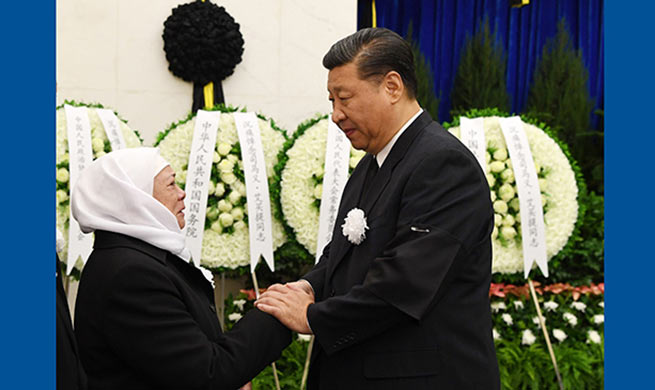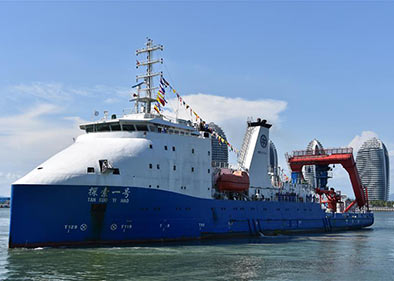NEW YORK, Oct. 18 (Xinhua) -- An exhibition featuring Chinese typewriters and processors started to be on view in New York city on Thursday, offering unprecedented insight into the still-transforming history of one of the world's oldest living languages.
The exhibition, named "Radical Machines: Chinese in the Information Age," explores the historical significance and technological innovation behind Chinese typewriters, and the role they played in the survival of the Chinese language into the information age.
For centuries, written Chinese had presented fascinating puzzles for engineers, linguists and entrepreneurs. A Chinese typewriter, which inputs a language with no alphabet, and with more than 70,000 characters, had long been regarded as technologically impossible, according to experts. With help from the global community, China solved these puzzles, and Chinese became one of the world's most successful languages in the information age.
Several rare typewriters and computers, and an array of typewriter slugs, advertising stamps for newspapers, a movable type cabinet, historic photographs telegraph code books, typing manuals, ephemera are on display. Among them is the oldest known Chinese typewriter in the western hemisphere.
Tom Mullaney, the exhibition's curator, said it's striking to him that while there are dozens of museums that are entirely dedicated to the history of western information technology, there's not a single museum on planet earth that is dedicated to Chinese language in the information age.
His personal collection makes up a large part of the exhibition, which took him more than a decade to compile.
Also a professor at Stanford University, Mullaney said the machines and artifacts on display were also the culmination of cross-cultural exchange between Chinese students studying at American institutions, like New York University, Chinese investors partnering with American corporations, like IBM, and the pioneering work of Chinese-American linguists and technologists.













